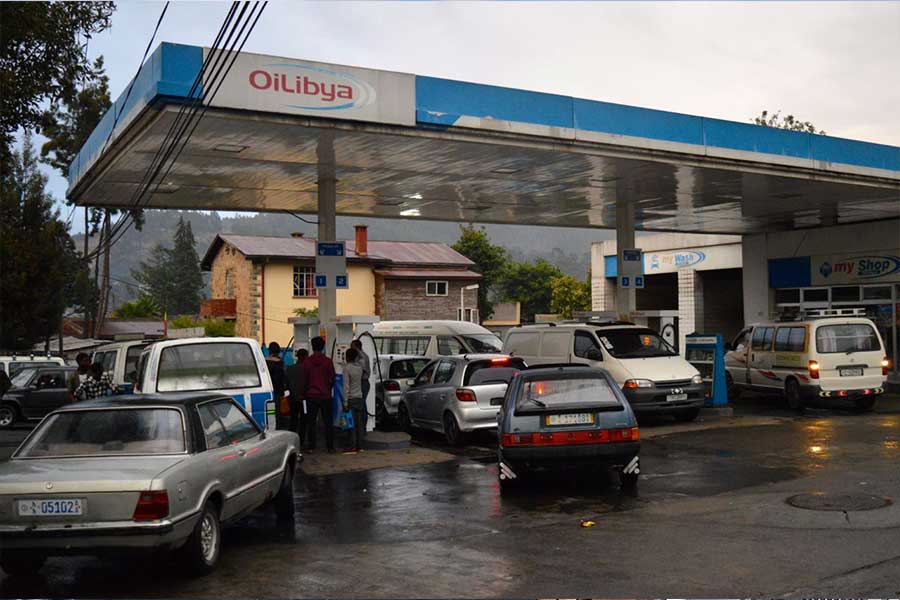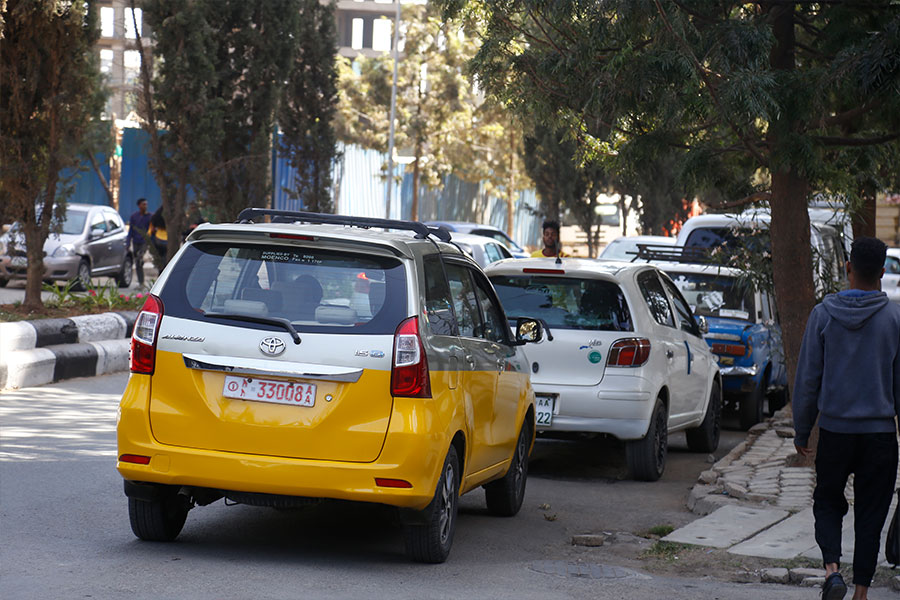
Fortune News | May 06,2023
Businesses in the car market will be required to conduct background checks identifying and verifying buyers, provided that a new directive in the making by the Financial Intelligence Services (FIS) is enforced. The draft directive demands motor vehicle dealers assess the risk related to buyers' business and transactions and apply due diligence.
Officials of the Service want to curtail money laundering or terrorist financing through transactions in the imports and sales of vechiles. Compliance begins with a written policy, which includes registration of client identity, the ownership structure of the vehicle and verify the authentication of data provided by clients, disclosed Wondwesen Abebe, a senior officer in the legal department of the FIS.
He told Fortune the need to designate non-finance institutions that could be in money laundering and terrorist financing prompted the move. According to Wondwesen, real estate, precious minerals and motor industries are uniquely exposed to money laundering.
"We don't expect immediate implementation," Wondwessen told Fortune. "But, work will begin soon."
While checking background information will be the bare minimum, failing to report suspicious transactions with high-risk customers might lead to criminal liability. The degree of suspicion will be grounded on an extended set of indicators that industry players are expected to notice. The draft directive foresees high-risk customers are people with dubious reputations, non-residents doing business in the country and "people from countries or geographic areas recognised to be hot spots for human trafficking, drug trade and prostitution."
Ethiopia spent 266 million dollars on car imports two years ago. During the first half of the following year, 20,000 cars were imported, constituting the seventh most imported product, with nearly one million vehicles on the roads.
Other suspicious indicators highlighted in the draft directive are large down payments in cash, buying at inflated prices, multiple purchases in a short period, last-minute cancellation of orders, and purchasing a vehicle without rigorous research. Car dealers will be compelled to pay attention to a customer that appears to be beyond the means of his known occupation and income.
Waddling about the dealership and engaging with customers, Bemnet Solomon, 26, claims that the nature of the job, with all the back-and-forth during the purchasing process, forces salespersons to get a good reading of people. She has been a car saleswoman at Tegona Car Imports for over two years. She sees the upcoming directive as a positive development.
"We already collect ID for insurance purposes," she said.
However, car brokers could not conceal their apprehension over regular reporting of suspicious transactions, which could put off potential buyers.
Misgana Girma has been in the business for over a decade. Although he is anxious about his fate, he agrees that there is an apparent demand from illicit sources to launder money in buying cars. He argued that buyers used to walk into a dealership and drive out in a car, turning up with more than 100,000 Br in cash before the regulation prohibiting such possessions was put in place a year ago. They drove to border towns to resell the cars and authenticate their ownership, thereby legalising their income.
He expects the new directive to help reduce purchases from suspicious sources, mainly through corruption.
Rental services in the business for over a decade, such as Yoye Car Rental Services, are not new to the process. The Manager, Yonas Kassaye, said their service is exclusive to businesses and bureaus with a registered and recognised legal background. Foreign nationals must submit identification from their organisations for security and insurance purposes.
"We report whenever they rent one of our cars, particularly during international conventions are held in the capital," he said.
For the legal expert Liku Worku, a consultant at Abyssinia Law, an online platform that offers legal consultation, the new directive has sparked questions on many aspects. He considers the application and implementation of these due diligence requirements far-fetched and cumbersome. The inquiry of financial background, "a sensitive and personal matter," by car dealers does not seem to have legal grounds. He believes that expecting car dealers to discern the feasibility of someone's finances is a dereliction of duty by the government.
"I only see this as an attempt to foster a sense of alarm in the business community," he said.
He also raised human rights concerns on categorising high-risk customers based on geographical location.
PUBLISHED ON
Dec 10,2022 [ VOL
23 , NO
1180]

Fortune News | May 06,2023

Fortune News | Feb 06,2021

Radar | Apr 13,2025

Radar | Apr 08,2024

Fortune News | Jun 11,2022

Editorial | Apr 26,2025

Radar | Mar 25,2023

Fortune News | Aug 24,2019

Radar | Dec 17,2022

Fortune News | Jun 11,2022

Dec 22 , 2024 . By TIZITA SHEWAFERAW
Charged with transforming colossal state-owned enterprises into modern and competitiv...

Aug 18 , 2024 . By AKSAH ITALO
Although predictable Yonas Zerihun's job in the ride-hailing service is not immune to...

Jul 28 , 2024 . By TIZITA SHEWAFERAW
Unhabitual, perhaps too many, Samuel Gebreyohannes, 38, used to occasionally enjoy a couple of beers at breakfast. However, he recently swit...

Jul 13 , 2024 . By AKSAH ITALO
Investors who rely on tractors, trucks, and field vehicles for commuting, transporting commodities, and f...

Oct 18 , 2025
The political establishment, notably the ruling party and its top brass, has become p...

Oct 11 , 2025
Ladislas Farago, a roving Associated Press (AP) correspondent, arrived in Ethiopia in...

Oct 4 , 2025
Eyob Tekalegn (PhD) had been in the Governor's chair for only weeks when, on Septembe...

Sep 27 , 2025
Four years into an experiment with “shock therapy” in education, the national moo...